In today’s interconnected world, the Japanese language has become more than a cultural curiosity. It has opened a bridge of opportunities for varied sectors viz, education, business, and global networking. Since Japan is a giant leader in terms of technology, automobiles, and innovation therefore proficiency in the Japanese language surely gives the non-native professional/ student a unique edge. Japanese language courses serve as a boon that ensures that professionals/ students acquire the requisite proficiency in the language. Despite its importance for those special ones, learning Japanese is surely not a cake walk. Many learners struggle with its complex writing system, viz Kanji, Hiragana, and Katakana. Whereas others find pronunciation, grammar structure, and long-term consistency difficult to maintain. Therefore, choosing the right Japanese Language Course often becomes an equally daunting task.
Today, not every teaching centre provides the right mix of quality teaching, structured methodology, and cultural exposure. This blog aims to guide the language learners in selecting The Most Suitable Japanese Language Courses by comparing the two distinct options: one, the MOSAI, backed by the Embassy of Japan, and another one, the Kazumi Japanese & Culture School by Henry Harvin. For language learners, the decision is crucial, as mastering the Japanese language can lead to fast promotions or even open doors to various career options in multinational companies, translation, interpretation, diplomacy, tourism etc. By carefully weighing the strengths and shortcomings of both the institutes, I will help learners make an informed choice, ensuring that their time and investment turn into credible language skills and rewarding career growth or opportunities.
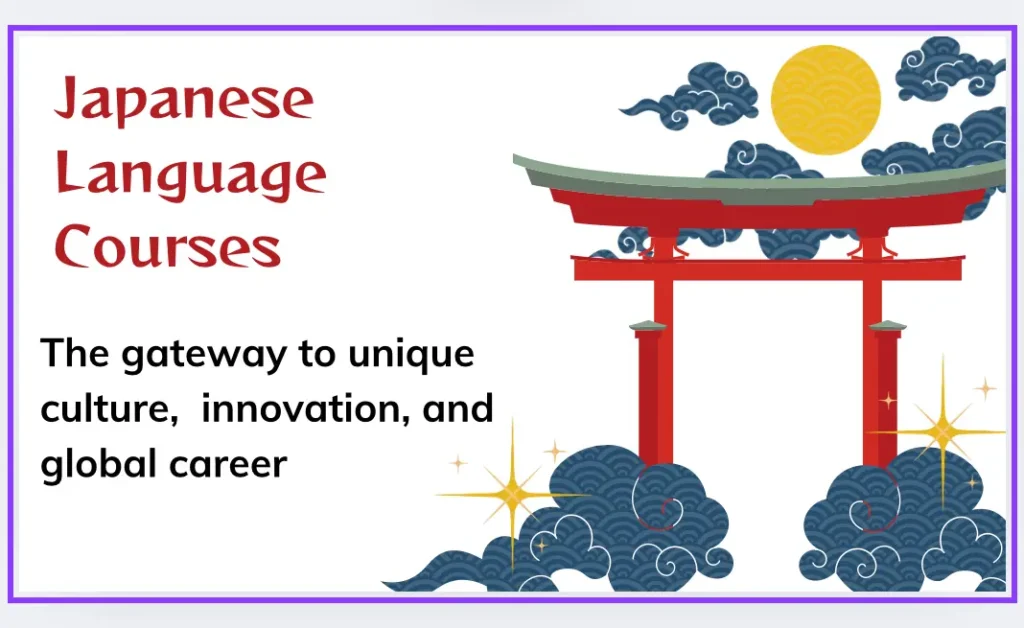
Comparing the two Institutes for Japanese Language Courses
1. Institute Type
MOSAI
The MOSAI stands for the Mombusho Scholars Association of India, which is a registered society. The MOSAI Institute of Japanese Language actively promotes academic and educational links between Indian and Japanese institutions. It also encourages higher studies in Japan and learning the Japanese language. It works in close coordination with the Japanese Embassy in India, the Japan Foundation, and other Indo-Japanese related organisations.
Kazumi Japanese & Culture School by Henry Harvin
Henry Harvin, the leading Ed Tech Institute, is recognised worldwide. It is based in India and the US. Henry Harvin, though a private company, is affiliated with the Government of India and NSDC. It offers Comprehensive Japanese Language Courses through its Kazumi Japanese & Culture School.
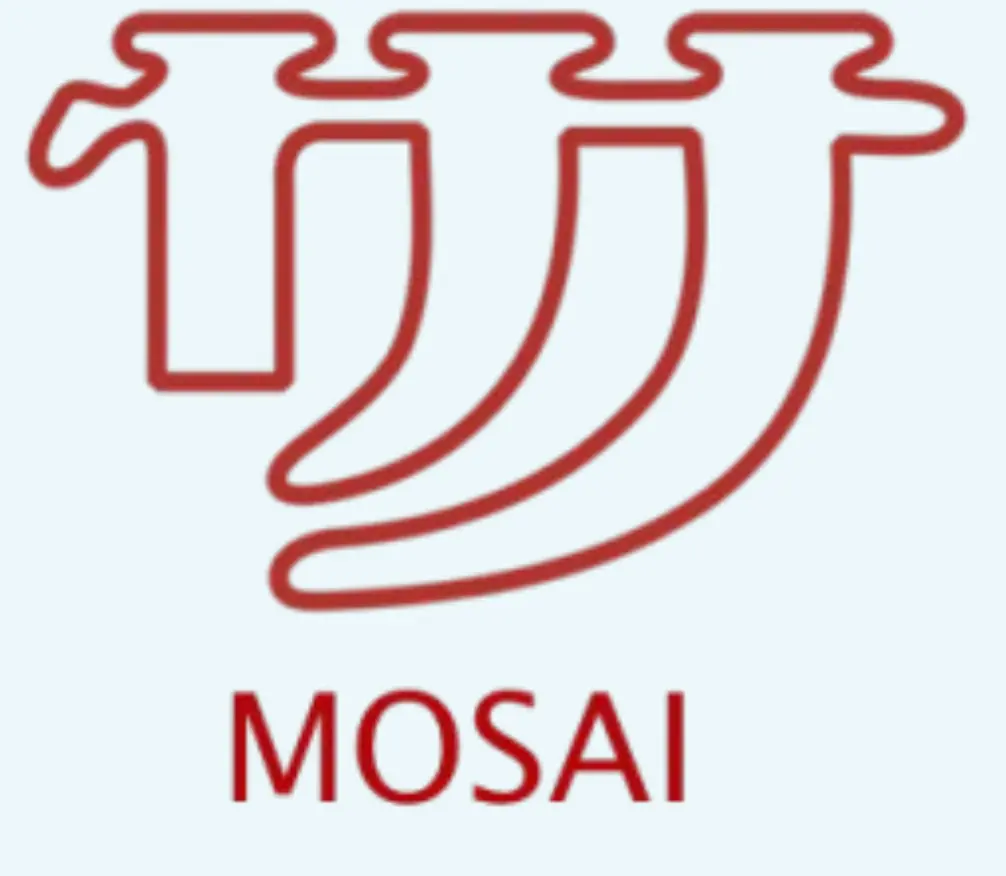
2. Mode of Training
MOSAI
The MOSAI, through its Japanese Language Institute in New Delhi, predominantly offers in-person Japanese Language Training Courses. MOSAI Institute of Japanese Language offers two intakes every year for the Japanese Writing Courses and Japanese Grammar Courses, which are otherwise collectively termed as Japanese Language Courses. The course starts in January and July only. The training timings are fixed, which may be the core issue for working professionals. So, it may feel ‘schoolish’, especially for adult language learners who are used to self-paced modules.
Kazumi Japanese & Culture School by Henry Harvin
Henry Harvin provides a Japanese Language Course, which is a flexible online learning course. It too has access from a mobile app and an e-learning portal, which makes it super convenient for revisiting the sessions for more clarity. One can even go back and rewind a particular part of the session till he or she is thoroughly clear of the concept.

3. Recognition/ Accreditation
MOSAI
The MOSAI is a highly recognised institute that is based in New Delhi. It is supported by the Japanese Embassy in India, the Japan Foundation, and other Indo-Japanese related organisations. Therefore, the institute has much recognition in Japan as well as in India.
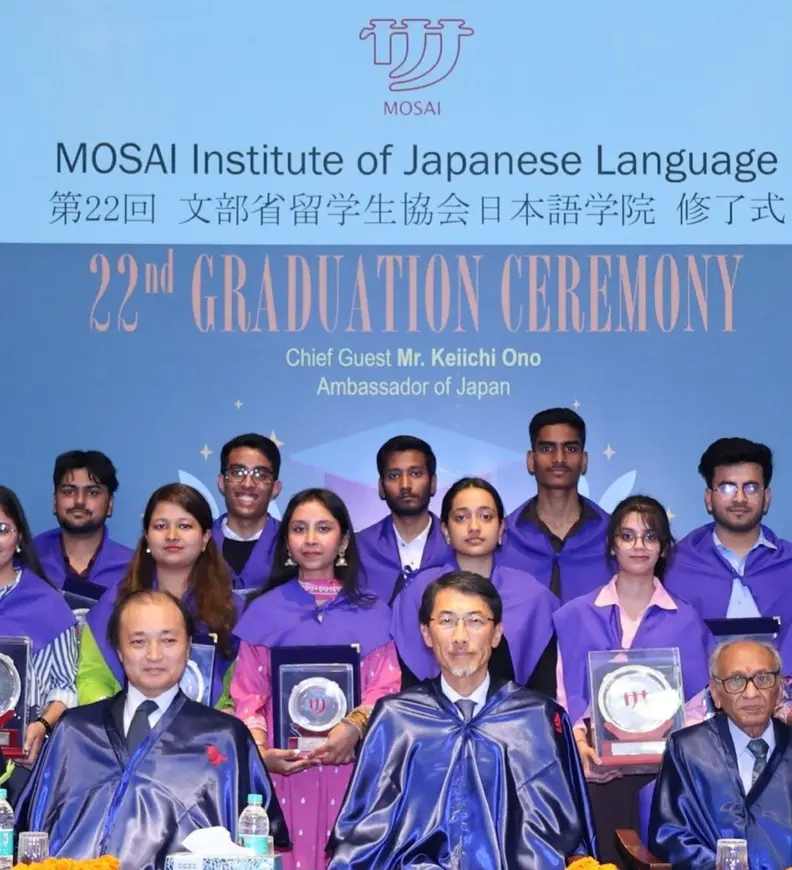
Kazumi Japanese & Culture School by Henry Harvin
Henry Harvin provides a Japanese Language Course which follows the Japan Foundation standard. Also, it issues a certificate which is recognised by the Government of India and NSDC. It also claims that it maintains a strong relationship with the Japanese Educational Authorities. Therefore, the certification is internationally recognised and accepted.
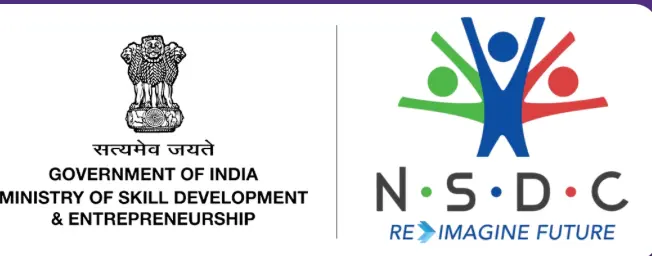
4. Curriculum
MOSAI
Its curriculum is designed with precision and care, offering students a structured pathway to master Japanese. It offers a minimum of 50 months of course. The tabular format below shows the course curriculum of the Japanese Language Course. It provides group-oriented interactive classes with native Japanese sessions. A minimum of 75% attendance is a must. Also, a minimum score of 60% is a must for progressing from one level to another.
| MOSAI | Kazumi Japanese & Culture School | |
| CourseCurriculum | Basic Japanese(37 weeks in a year/ 222 hrs) N5-N4: Basic Grammar and Basic Interaction | Elementary Level; JLPT N5(98 hr): Basic Japanese Language |
| Intermediate Level(37 weeks in a year/ 222 hrs) N3: Continuation of Basic Japanese | Pre-intermediate Level; JLPT N4(98 hr): Consists of grammar and vocabulary | |
| Advance Japanese(37 weeks in a year/ 222 hrs) N2: Continuation of Intermediate | Intermediate Level; JLPT N3(138 hr): Linguistic Skills | |
| JLPT Prep N1(N5 to N2) | Pre-Advanced Level; JLPT N2(158 hr): Reading and listening comprehension | |
| Advance Level; JLPT N1(178 hr): Complete knowledge of Japanese language |
Kazumi Japanese & Culture School by Henry Harvin
Henry Harvin provides a Japanese Language Training Course, Which Aims to enhance the Interpersonal Skills of the students in addition to gaining additional knowledge of the Japanese language. The tabular format above shows the course curriculum. It offers a total of 670 hrs of two-way live online interactive training sessions. You get to learn from the native, certified, and highly qualified faculty. The online training with recorded sessions gives total freedom to the student for revisiting the concepts till he/ she master them. Also, the quizzes/ exams at the end of every module prepare you well for JLPT.
5. Fee Structure
MOSAI
The MOSAI has a fixed fee structure that a student has to pay for every level of the Japanese Language Course. Students can pay the fee for each level in that particular term. It is generally the half-period of the full duration of that level. The tabular format below shows the fee structure. The students can pay online.
| Fee | MOSAI | Kazumi Japanese & Culture School |
|---|---|---|
| Level 1 | Rs 27500Rs 13750 (self-paced) | Rs 9500Rs 4750(self paced) |
| Level 2 | Rs 29500 (weekdays) approx, Rs 31800 (weekends)approx | Rs 31500Rs 15750 (self-paced) |
| Level 3 | Rs 29500 (weekdays), approx 31800 (weekends) | Rs 17500Rs 8750 (self-paced) |
| Level 4 | Rs 18000 for initial registration, Rs 29500 (weekdays), Rs 31800 (weekends) | Rs 24500Rs 12250 (self-paced) |
| Level 5 | Rs 31500Rs 15750 (self paced) |
Kazumi Japanese & Culture School by Henry Harvin
Kazumi Japan & Culture School has a fixed fee structure that a student has to pay before undertaking that particular level of the Japanese Language Course. There are other charges also for registration and lifetime access to the program, which are quite minimal. There are EMI options also, which are good for working professionals as they can repay slowly from their earned money. The tabular format above gives the fee structure. Some students are interested in a self-paced learning mode. In that case, the recorded sessions will be provided to the students. Accordingly, the fee works out to be most economical.
Conclusion
Learning Japanese from Japanese Language Courses is not just about mastering a language. However, it is about a gateway to culture, innovation, and global career growth or even opportunities. The great learning comes from consistency, dedication, and the ability to immerse oneself in the language. The MOSAI, which is an embassy-backed institute, offers authenticity, structured pedagogy, and international credibility. But, it may not be accessible to all due to being based in Delhi only, limited seats and rigid schedules. Whereas, Kazumi Japanese & Culture School by Henry Harvin provides flexibility, student-friendly teaching, quicker admissions, learning from your home, timing meeting your schedules, global recognition, etc..
Therefore, the choice of Japanese Language Courses between the two depends largely on the student’s priorities. Students must weigh both the options judiciously so that they can invest wisely in their future. But to my understanding as brought out above, Kazumi Japanese & Culture School by Henry Harvin is the best for Japanese Language Courses.
Where learning Japanese language and culture feels just right, Choose Kazumi Japanese & Culture School by Henry Harvin for making your future bright!
Recommended Reads
- How to Learn Japanese: Top Tips for Beginners
- Top 12 Japanese Language Courses in India
- Best Online Japanese Language Institute with Fees, Duration, Levels & Certification
- Best Japanese Language Courses in Delhi: Scripts, Levels, and Scope
- Mastering The Japanese Online Course: A Comprehensive Guide
FAQs
Ans. Every language has its own complications and concepts. Learning those basic concepts with regular practice can make one proficient in that language. The same mantra applies to the Japanese language, too. Japanese is an easy language. Therefore, selection of a recognised institute for the Japanese Language Course should be the only concern..
Ans. The JLPT scores are like your 10th-grade marks, the validity of which never expires. Q2. Is JLPT valid for 10 years?T valid for 10 years?
Ans. Preferably yes. One can even learn online after shifting or starting work with the Japanese company.
Ans. Both are good. Online is always one step ahead. It gives you additional freedom to revisit the topic covered. This is a must for better understanding and clarity of the language.
Ans. Japanese does not have one script only. It has three distinct scripts. The three scripts are Hiragana, Katakana, and Kanji. All of these scripts are well covered in Japanese Language Courses.

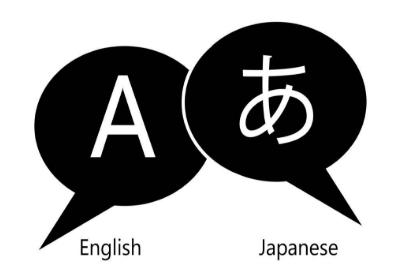




Recent Comments